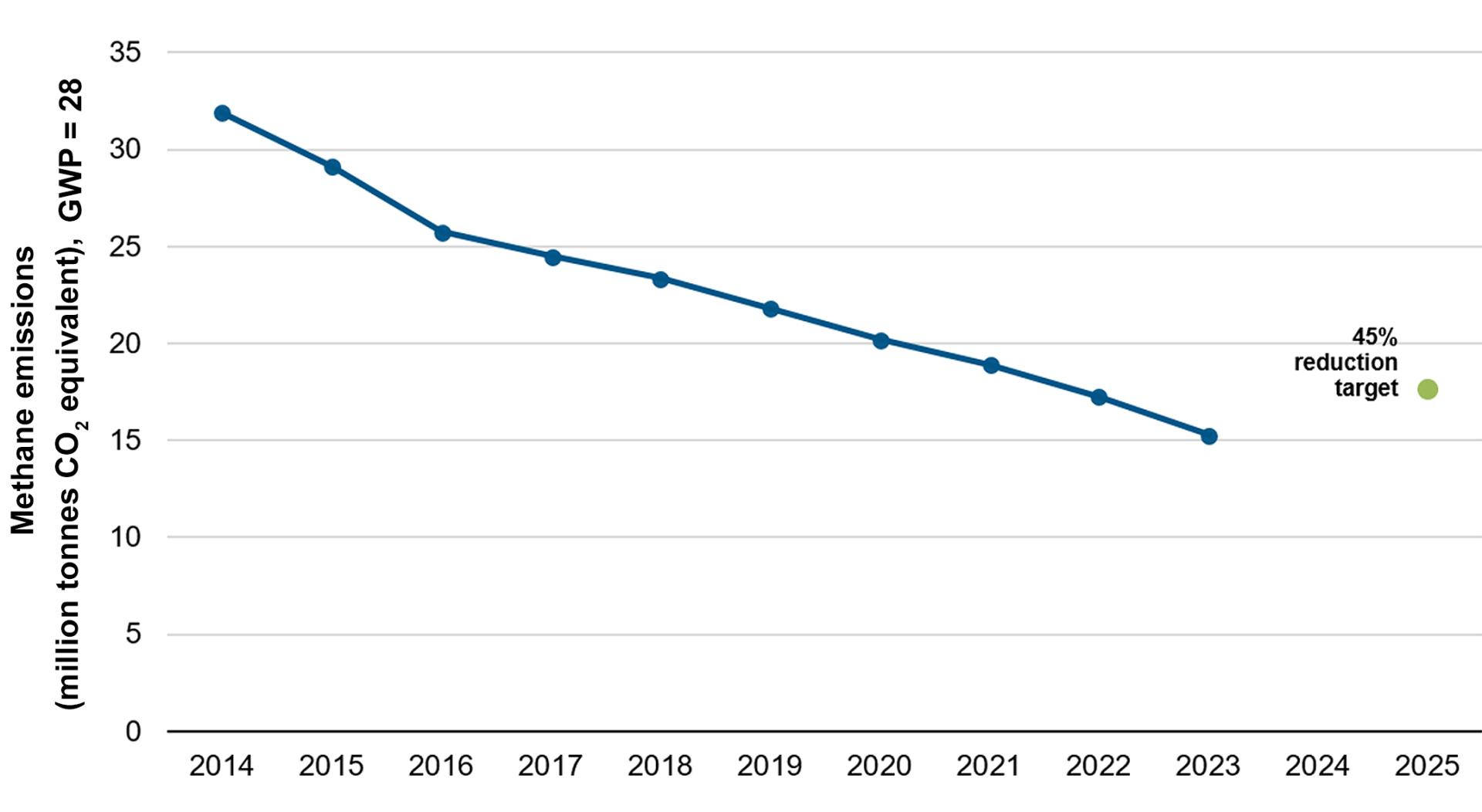November 2024
Under the industry performance program, we publish an annual Methane Performance Report. Here, we present reported data and data analysis demonstrating the progress in reducing upstream oil and gas methane emissions.
In 2015, the Government of Alberta directed us to develop requirements to reduce methane emissions from upstream oil and gas operations. To accomplish this, we developed requirements in Directive 060: Upstream Petroleum Industry Flaring, Incinerating, and Venting and Directive 017: Measurement Requirements for Oil and Gas Operations. To learn more about these requirements, see our methane reduction page.
The methane emission reduction target established by the Government of Alberta was to achieve a 45% reduction in oil and gas methane emissions from a 2014 baseline by 2025. AER methane emission requirements set the oil and gas industry on the path to achieving that target three years early, as was announced in November 2023.
To evaluate the emission reductions achieved to date, we use a combination of reported information and emission estimates. Estimation is required for sources where reporting volumes are either incomplete or not submitted.
The figure below shows that Alberta’s oil and gas methane emissions are estimated to have been reduced by about 52% between 2014 and 2023.

Most of the methane reductions shown here occurred before the Directive 060 methane requirements were in effect. These reductions resulted from improved industry practices and early action driven through programs like the Alberta Offset System, direct funding programs, and the new methane reduction requirements.
The estimates reflect the best available data at the time and may not align with emission estimates conducted by other parties. We will continue our compliance assurance activities and data quality assessments to improve our understanding of the 2014 emission baseline and the current methane emission levels. As data quality improves, we will continue our shift toward using reported data when possible, minimizing reliance on data estimation. We will evaluate emission reductions annually as part of our ongoing industry performance reporting.


